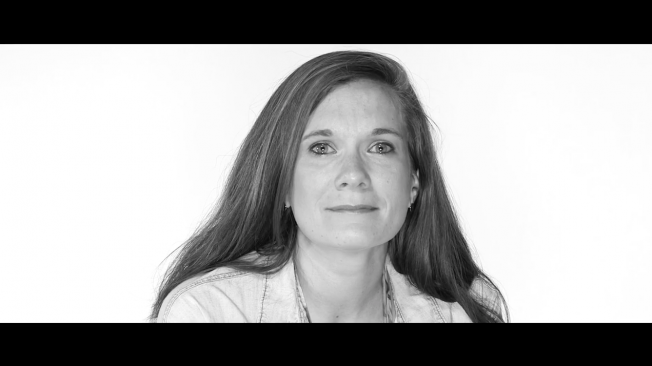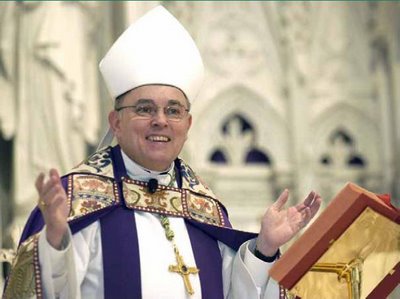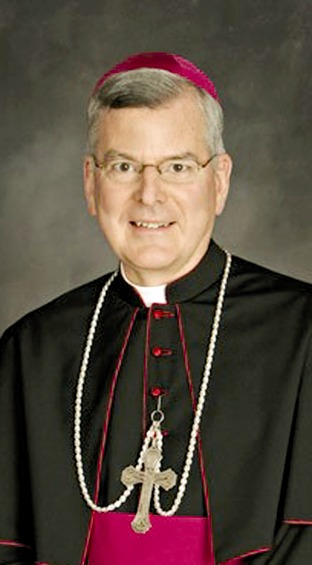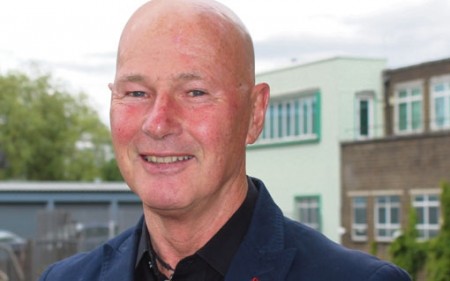
Yesterday, we reported that Philadelphia Archbishop Charles J. Chaput issued a statement over the recent termination of openly gay Waldron Mercy Academy teacher Margie Winters. In it, he stated that was “very grateful to the Religious Sisters of Mercy and to the principal and board members of Waldron Mercy for taking the steps to ensure that the Catholic faith is presented in a way fully in accord with the teaching of the Church.” We wanted to see the reaction of local gay Philadelphians who identify as Catholic (or, in some cases, recovering Catholics), so we asked them how the rhetoric from Chaput and other Catholic leaders impacts their faith and belief in the Church.
“Obviously I don’t agree with [the Church’s] decisions. It’s a shame but every religion has it’s oddball decisions and leading characters. I respect their decision as it’s still technically okay to discriminate against someone’s sexual orientation, though I personally don’t think you should be allowed to do so. I do still think certain messages religion brings, including togetherness and treating others respectfully, is still important for people to hear. If [the teacher’s firing] is based on her marriage and not her performance, then that goes against the core teachings I was brought up to believe.”-Matt O’Neill
“I don’t that that it is right, obviously. I feel that with Catholics, we are kind of forced to believe certain things, and some things I do just because that is how I was raised and how most of my family is. Do I think that it is necessarily right? No. I believe that even though that Catholics believe that being gay is wrong, I still believe when I die that I will go to heaven, at least that is what I pray for everyday. I hardly go to church anymore not do I believe in confession. I guess it is just being raised Catholic that I still believe in some of the beliefs but not necessarily all of them. One of the stories from the bible that I remember being told when I went to Catholic schools is the story of Mary Magdeline, who was basically a hooker and when people were going to ‘stone’ her for what she was doing, Jesus stopped it and said something like ‘let he who is without sin, cast the first stone’ and no one threw a stone. This resonates a lot with me because I feel that in that scenario, Jesus doesn’t judge, and no one else shouldn’t either. Even though that Catholics believe being gay is a sin, there are many other sins that people do. However, I feel like if I have good morals and a firm belief in God, I will eventually get accepted into heaven.”-Michael Niedbalski
“Personally, the hypocrisy and passive-aggressive bigotry and ignorance they spew made me feel very unwelcome. This sort of rhetoric is what drove me from their church, but I don’t think it by any means is an exclusively Catholic message. However, it has to be partially responsible why so many Catholic schools have shut their doors and the church itself is failing. When you alienate so many people and the people who care for them, it can’t be surprising when many feel unrepresented and unwelcome. It definitely did harm to me growing up in that mentality. The message I got as a prepubescent boy was that unless you were married to a woman with children, then you didn’t matter, unless you wanted to become a priest. Frankly those were the only options presented to me. And the Catholic church’s archaic stance on safe sex and abstinence-only policies for their students definitely had a contributing factor in my seroconversion and HIV status at the age of 17.”-Greg Schell
“I am embarrassed to be Catholic. I go back to what I was taught in Catholic school. They beat this one phrase in your head: ‘Judge not least ye be judged!’ That gives me the strength at times to continue, knowing that those hiding behind religion will be judged by God at the End of Days. What hurts me so much about this is the Catholic Church moved their priests around who molested their own parishioners and protected them, yet they will viciously go after the LGTB community and call us, me, a sinner or unclean when their own priests hurt kids both mentally and physically.”-Patrick Hagerty
“Chaput’s statement does not dishearten me because it does not reflect the living Church. It reflects a stagnant, dying Church. Years ago, myself and a fellow gay Catholic started a young adult Catholic community in Philadelphia. The majority of our young adult Catholics (straight and gay) attend mass every Sunday, are involved in parish-life, serve their local communities, and also disagree with a number of the Church’s teachings, especially its position on homosexuality. Catholics that disagree with Church leadership, and its antiquated teachings, have found voice, and have found one another. We’re not going anywhere. Together, we have found ways to work around those, like Chaput, who interfere with our faith, and our unconditional love for all others, without distinction. While sometimes difficult to see, many Catholics are promoting LGBT-friendly changes within the Church, its affiliated organizations (including Catholic schools), and in communities near and far. Such change has emerged, is occurring, and will continue to unfold in spite of leaders like Chaput. And this change is only fueled by a Pope who appears to be far more loving and compassionate than our Bishop Chaput.”-Seth Jacobson
Complete Article HERE!




